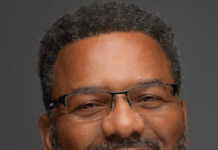 A new study by researchers at the University of North Carolina at Chapel Hill, Roanoke College in Salem, Virginia, and Northwestern University in Illinois, offers further evidence to the fact that college graduates enjoy healthier, longer lives compared with individuals who do not graduate from college. But the study finds that the health benefit of educational attainment is not as great for Blacks as it is for Whites.
A new study by researchers at the University of North Carolina at Chapel Hill, Roanoke College in Salem, Virginia, and Northwestern University in Illinois, offers further evidence to the fact that college graduates enjoy healthier, longer lives compared with individuals who do not graduate from college. But the study finds that the health benefit of educational attainment is not as great for Blacks as it is for Whites.
The authors found that the Black–White gap in life expectancy is greater at higher levels of educational attainment. They also suggests that African Americans from disadvantaged backgrounds who went to college have worse physical health than their similarly disadvantaged peers who did not attend college.
The authors speculate that “when young adults from disadvantaged backgrounds achieve upward mobility the higher-status environment in which they find themselves may differ greatly from their social environment of origin; such incongruence can lead to isolation and a lack of social support.”
The study notes that Blacks who complete college may find themselves in a White-controlled hostile or discriminatory environment and this may raise levels of stress which could lead to health problems.
The full study, “College Completion Predicts Lower Depression but Higher Metabolic Syndrome Among Disadvantaged Minorities in Young Adulthood,” was published in the Proceedings of the National Academy of Sciences. It may be accessed here.











I wonder what first generation black medical doctors go through when dealing with racist patients who may hold bias views and question the competency of black doctors.
Racism has never died, it just morphed into something more subtle and sophisticated.
Black medical doctors disproportionately work in black communities, like black teachers. Medicine is one of the few professions in which you can become a part of the top 10% of earners in this country and work in a black community. I’m inclined to think that black medical doctors have to deal with black patients who hold bias views against black medical doctors and question their competency more than with white patients, simply because the majority of black doctors work in majority black communities.
Like most health problems that plague black people, the ones originating from voluntarily placing one’s self in a hostile racial environment are self-inflicted. Always thinking the “white man’s ice is colder” has its disadvantages.
Solutions produce more blacks in these fields and more blacks who can form communities where these professions can be supported. To stay away from a profession because of a perceived existence of unwantedness is not wise.